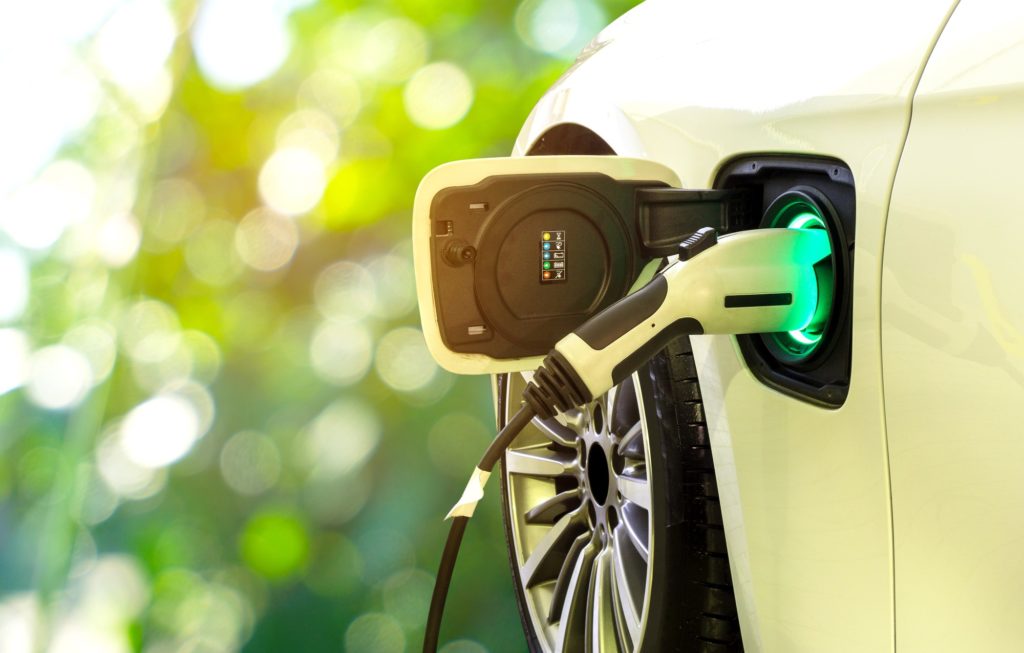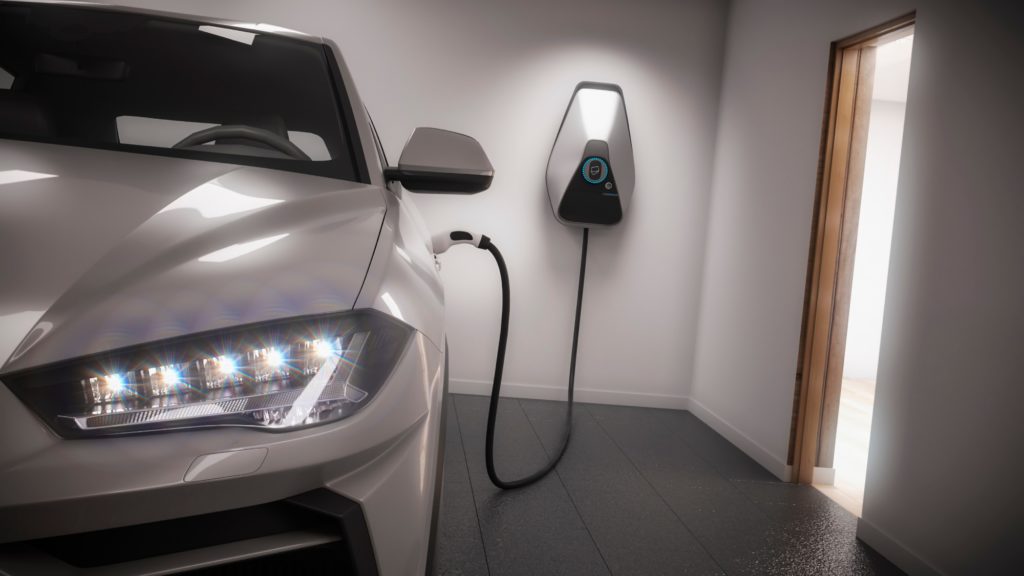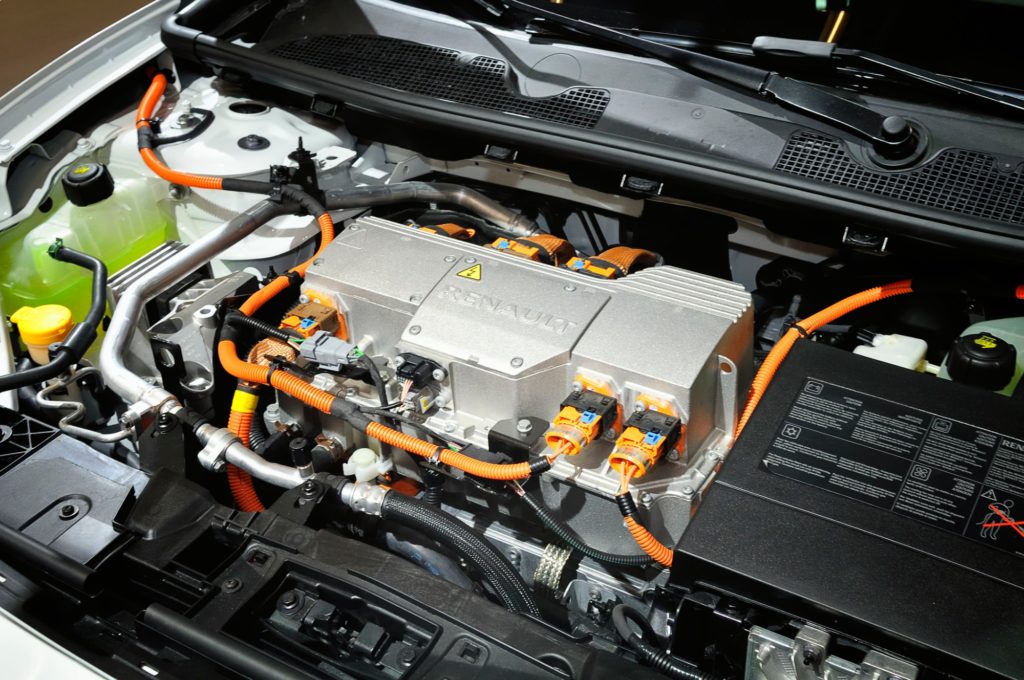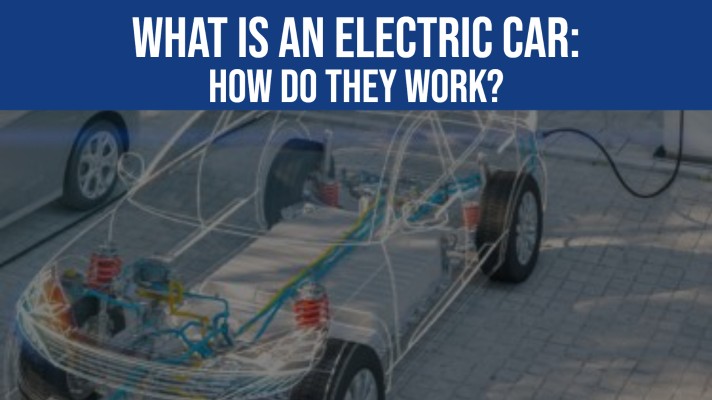What Is An Electric Car? An All-In-One Guide to EV’s
An electric car (EV) is a vehicle propelled by one or more electric motors, using stored energy in the form of a rechargeable battery pack. Compared to traditional petrol-powered cars, EVs have lower emissions and operating costs and provide greater efficiency and performance. In this blog, we’ll be taking an in-depth look into all things electric cars, including how they work, the types of EVs available, and the many advantages they offer.
So, What Is An Electric Car & How Do They Work?
At its core, an electric car is a vehicle powered by electricity instead of petrol or diesel. EVs are propelled by an electric motor that draws its power from a rechargeable battery pack that can be charged at home or when you’re out and about. Essentially, the electric car’s battery delivers energy to the motor to power the wheels and the rest of the car’s components.
These are game changers for the environment long-term as they produce zero emissions and don’t require an internal combustion engine, meaning they’re significantly greener than their petrol and diesel counterparts. And, with recent technological developments, electric cars are now more accessible and popular than ever before. We’ll take a more in-depth look at the various benefits of an electric car later in this blog.

What Are The Four Types Of Electric Vehicles?
Electric cars can be classified into four categories:
Battery Electric Vehicle (BEV)
This is a car that only runs on electricity. This means you need to charge it to use it. Most people can charge it overnight at home, and it will have enough charge for the entire day, especially if you’re commuting to work or doing light driving regularly.
Plug-in Hybrid Electric Vehicle (PHEV)
Plug-in hybrids are a mix between petrol and electric. Whilst they still have a charging point and onboard battery that needs to be charged, they also have a fuel tank. The idea is that these electric cars work by using a mixture of the two to get the benefits of both. Traditional fuel engines mean you can top up quickly with fuel when on long trips, and the electric motor means you can save fuel by using the electric motor for fuel-heavy tasks such as accelerating and starting.
Hybrid Electric Vehicle (HEV)
HEVs cannot be charged. This type of hybrid car uses a battery charged from driving and breaking to lower fuel consumption. Hybrid cars fuel to run just like conventional cars, yet the amount of fuel required is significantly reduced.
Hydrogen Electric Vehicle (Fuel Cell)
This is perhaps the least common type of electric car. With only a few charging stations, and a high price tag, the hydrogen vehicle has not been very popular. Unfortunately, this impressive car can travel 300 miles on a charge and only takes 10 minutes to refuel. Unfortunately, production costs are still expensive, hence why many brands have steered clear of making these in the meantime.
Electric Cars Vs Petrol and Diesel Cars: The Benefits Of Electric Vehicles
When deciding whether to invest in an electric or traditional car, you’ll want to consider a few things. These include:

Costs
Electric cars can be more expensive upfront but have much lower running costs. Whereas petrol and diesel cars are cheaper to purchase, they usually cost more to operate due to fuel prices. Outlining your budget before purchasing a car is essential.
Related Article: Electric Car Installation Cost Guide
Emissions –
Generally, electric cars produce no emissions when driving and significantly fewer emissions over their lifetime than petrol or diesel vehicles. If going green is of paramount importance to you, then you should consider battery electric cars or an in-between called hybrid electric vehicles.
Performance –
Electric cars often have a faster acceleration than petrol and diesel cars, with some achieving 0-60mph in just 4 seconds. Browsing through a car’s performance specs can help give you a clear idea of what car you’re after. Some electric cars also provide smoother rides and quieter engine noise levels.
Charging Electric Vehicles
So, how do you charge an electric vehicle? Well, charging points can be found all over the UK, everywhere, from car parks to petrol stations, but the best part has to be the fact that you can charge it from home for your own convenience.
The battery packs in your car, how much energy it requires, and your maximum range will impact how long your electric car takes to charge as well as other factors such as maximum power. In addition, fully electric cars will need longer to charge than plug-in hybrid vehicles, so it is important to factor this in. We’ve compiled some helpful information on timings and costs in our blog ‘How Much Does It Cost To Charge An Electric Car?‘
Ultimately, battery electric vehicles will make you take into consideration mileage and charging times prior to any big trip. However, having rechargeable batteries that can be charged at home for our own convenience is amazing, and the range of these vehicles is now at a point where you can find a charger pretty much anywhere!

Are Electric Cars Reliable?
The short answer is yes! Even the cheapest electric car can provide a reliable vehicle for your day-to-day needs. A petrol or diesel engine can be costly to run, especially with fuel prices increasing daily.
What Is The Lifespan Of An Electric Motor?
As of 2016, the average lifespan of an electric car is around eight years. This is based on data from the National Highway Traffic Safety Administration (NHTSA), which shows that the average vehicle lasts for about 150,000 miles before it needs to be replaced.
However, this number will vary depending on the make and model of the car, as well as how well it is maintained. For example, some luxury electric cars can last for up to 20 years with proper care. Ultimately, the lifespan of an electric car is largely dependent on the individual vehicle.
Electric cars have vastly improved in recent years as well. Brands such as Tesla have advanced the quality of electric vehicles significantly, acting as a benchmark for their competitors to strive towards.
As a general rule, the quality of batteries is now significantly better, along with the affordability of electricity and a variety of new features such as regenerative braking! As a result, electric and hybrid vehicles now have an amazing lifespan that can match a petrol or diesel car.
When Will All Cars Be Electric?
This question has no definitive answer, as it will depend on several factors, such as technological advancement, public demand, and market forces. However, many experts believe that electric cars will eventually become the norm and that by 2030 or 2040, most cars will be electric.
This shift is already happening in countries like Norway, where over 50% of new car sales are electric vehicles. So, it is likely that the trend will continue, and more people will adopt electric cars in the years to come.
Can I Get An Electric Company Car?
Here at Fleet Evolution, we’re one of the UK’s leading providers of salary sacrifice car schemes for electric vehicles. This mean you can get an electric company car without having to pay for the full purchase price. Not only do we offer a range of electric cars, but we also give you the option to have additional insurance packages and much more. So, if you’re looking for an affordable way to get your hands on a new electric car, then contact us today to find out how we can help. We would be more than happy to answer any questions you may have about our salary sacrifice schemes!
We hope that this blog has been helpful in explaining how an electric car works, and when we can expect to see them become the norm. If you’re looking for an affordable way to get your hands on a new electric vehicle, then contact us today at Fleet Evolution and we’ll help you find the perfect salary sacrifice car scheme for you.
Electric Car FAQs:
We’ve done our best to try and answer some of the most frequently asked questions about electric vehicles below:
What Is An Electric Vehicle?
An electric vehicle uses an electric motor instead of a petrol motor. Hybrid electric vehicles use electricity and fuel, but the main idea is that electric vehicles use far less petrol or diesel than traditional vehicles. Meaning they use renewable energy and emit cleaner gasses.
Whilst some electricity is produced in ways that are not clean or have some problematic environmental issues, it is still a much cleaner energy source than petrol or diesel.
Do Electric Cars Have Engines?
No, electric cars do not have engines – instead they use an electric motor. The electricity stored in the battery powers the motor and is sent out to turn the wheel axles as you drive. Electric motors are much more efficient than petrol or diesel powered engines, meaning they can generate more power while using less energy and fuel.
What Are Features Of Electric Cars?
Electric cars have several features that make them preferable to petrol or diesel-powered cars, such as: lower fuel costs, less maintenance, greater acceleration and torque, regenerative braking, low emissions, quieter operation, and no need for oil changes or tune-ups.
What are 3 interesting facts about electric cars?
1. Electric cars have the potential to reduce air pollution and greenhouse gas emissions.
2. They are energy efficient and can go up to three times further than a petrol-powered car using the same amount of electricity.
3. The cost of electric vehicles is decreasing as technology advances, making them more affordable for customers.
Tags : electric car, electric vehicles, Salary Sacrifice, ULEV, ultra-low emission vehicle

